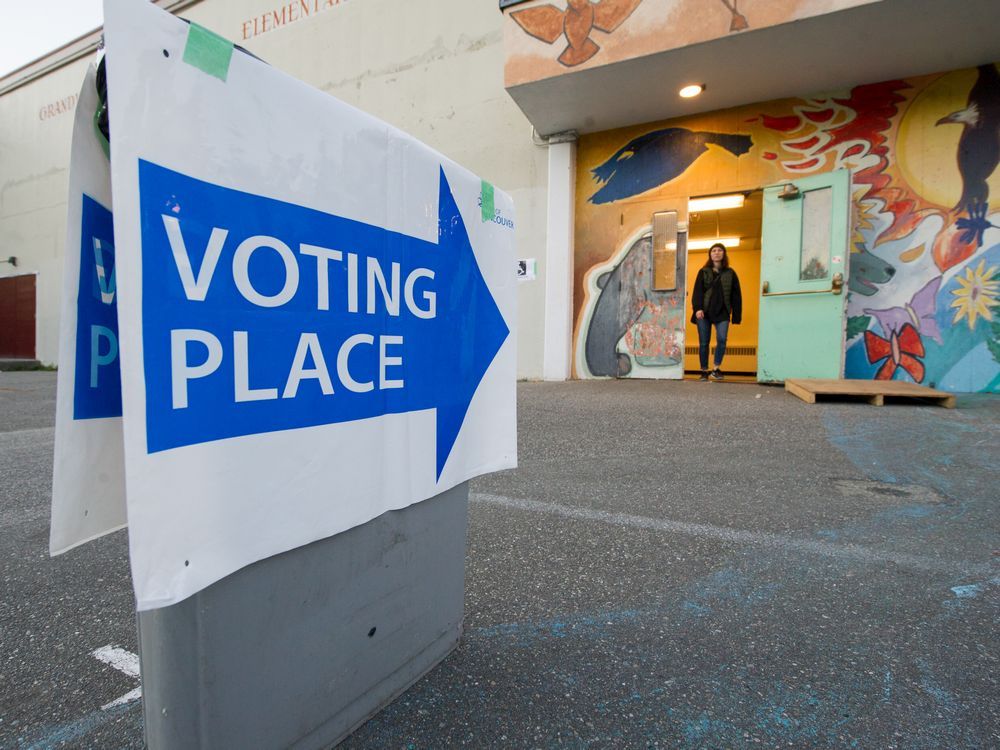Daphne Bramham: Voting is a right of citizenship, not residency

Credit to Author: Daphne Bramham| Date: Thu, 02 Jan 2020 22:54:17 +0000
Canadians seem intent on devaluing citizenship and eroding the rights and responsibilities of those who hold it at a time when fewer immigrants are choosing to become citizens.
In the guise of strengthening democracy, municipal politicians backed by the B.C. Civil Liberties Association are lobbying for non-citizens to be granted voting rights in local elections. It’s being trumpeted as “an extraordinary opportunity.”
The question is: An extraordinary opportunity for whom?
In the federal arena, the major parties (including the Bloc Quebecois) have all abandoned the requirement that members be citizens. That’s despite the fact that party members have a greater voice in the democratic process, better access to elected representatives and a hand in both choosing candidates and the party’s leader.
Both the New Democratic Party and the Conservative Party allowed all of their members to vote in their leadership contests, while the governing Liberals’ leaders have always been chosen by delegates — members elected in their riding to vote at the convention.
At its September convention, the Union of B.C. Municipalities delegates passed a resolution urging the extension of voting rights to permanent residents. Coincidentally, that convention also included a reception sponsored by the Chinese consul general.
One reason proponents gave was a desire to increase voter turnout, which failed to hit even 40 per cent in most communities in the 2018 election.
Given what the BCCLA describes as “barriers” to citizenship, including increased costs and government backlogs, it says allowing permanent residents to vote would “foster deeper civic engagement.”
But over the past two decades, Statistics Canada reports a 15-per-cent decline in immigrants becoming citizens. The percentage has gone from a high of 75.4 per cent in 1996 to 60.4 per cent by 2016. The most marked decline is among East Asian immigrants, only 44.8 per cent of whom chose citizenship compared with 82.9 per cent in 1996.
StatsCan noted, in its November report on citizenship trends, that this is “partly” due to China’s rapid economic growth since the late 1990s. It doesn’t speculate on other reasons.
Others have. China has zero tolerance for dual citizenship. Becoming a Canadian means involuntarily renouncing Chinese citizenship, which could have repercussions for investments, inheritance and property ownership in China and future travel in China. It could even put family back home at risk.
If permanent residents can vote in municipal elections and participate in provincial and federal politics at the party level, it means the only advantage of Canadian citizenship is a passport and the expectation of consular assistance if you travel abroad. Even that expectation, however, has been sorely tested in China, where ethnic Chinese with foreign passports are treated as Chinese nationals. Even Canadian-born Michael Spavor and Michael Kovrig, who are now starting their second year of illegal detention, have been denied all but monthly consular visits.
Because federal party membership is a closely held secret, there’s no way of knowing what percentage are permanent residents.
But the Samara Centre for Democracy’s 2019 Citizens’ Survey found that fewer than 10 per cent of Canadians belong to political parties and only 15 per cent would consider joining one of the major parties in the future.
It’s a bit surprising given how little it takes to join and how much influence members can potentially exert.
It’s free to join the governing Liberal Party. Others charge. But even the highest fee — the Conservatives’ — is a modest $15 a year.
And, as the 2017 Conservative leadership convention proved, a few members’ votes made an enormous difference. A CBC analysis found that 66 votes in eight ridings was the difference between Andrew Scheer winning and Maxime Bernier losing.
(Whether the same system of one-member-one-vote and equal weight given to all ridings regardless of how many members it has will be used when Conservatives choose Scheer’s replacement in November 2020 has yet to be decided, spokesman Cory Hann said this week.)
Prior to this year’s federal election, Canada’s security services warned of foreign interference. They focused on the use of social media to spread false news.
But Canadians’ apathy coupled with politicians’ disinterest in protecting citizenship rights opens the door to foreigners using the democratic process itself to subvert it.
Permanent residents are already entitled to almost all of the rights guaranteed to Canadians, save voting.
They are entitled to most social benefits including health care. They are free to work or study anywhere in Canada and have all of the protections provided by the Charter of Rights and Freedoms and Canadian law.
Although most permanent residents are still on the path to citizenship, it’s troubling that growing numbers are not. If there are unnecessary barriers, those should be fixed because this is a country of immigrants.
It should also be a place where newcomers embrace the opportunity to become citizens and commit to help Canada become a better place.
Voting rights are one of the tools essential to doing that.
CLICK HERE to report a typo.
Is there more to this story? We’d like to hear from you about this or any other stories you think we should know about. Email vantips@postmedia.com.